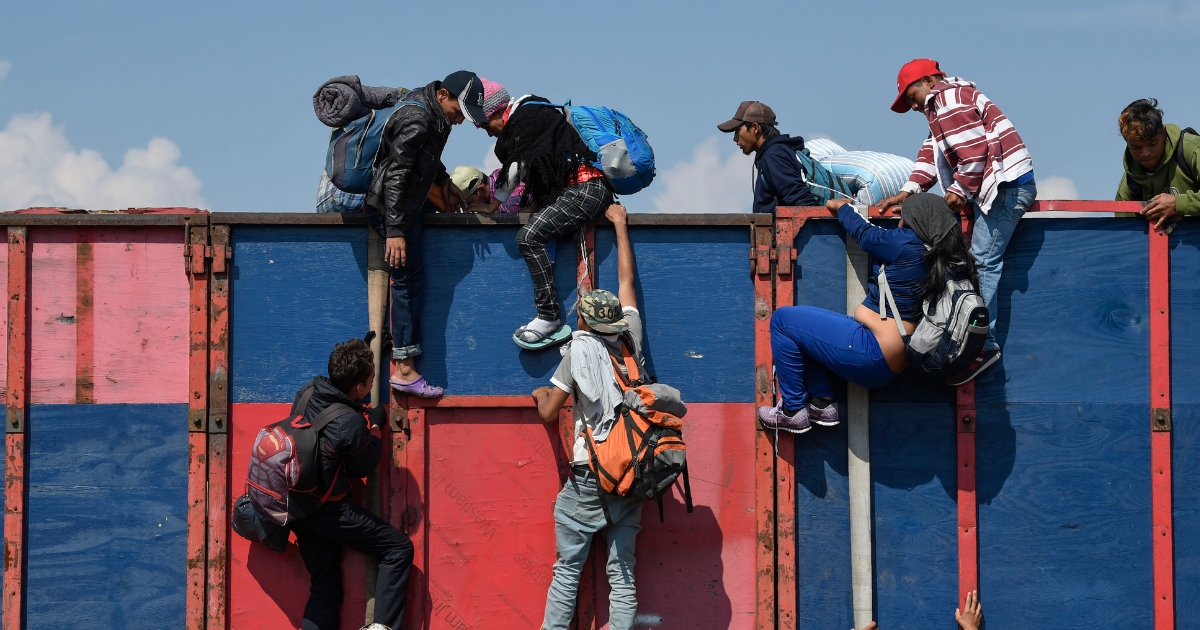
Arpaio: It's Time To Let Politicians Know We're 'Mad As Hell' That Our Border Is Not Secure
Remember that old 1976 film “Network” when a news anchor pronounces on-air, “I’m as mad as hell, and I’m not going to take this anymore”?
That comes to mind when I think about President Donald Trump’s worthy fight with Democrats to get funding to secure our southern border.
He has called it a matter of national security, and it is, particularly in relation to drug trafficking and the gang activity associated with it.
As a sheriff in Arizona for 24 years and before that an agent and regional director with the Drug Enforcement Administration for over two decades, I witnessed firsthand the human suffering caused by drug abuse.
A report by the Centers for Disease Control and Prevention tells us that every day an average of 130 Americans die from opioid overdoses alone.
Beyond the individual human toll, I also saw while working with the DEA throughout Latin America and the Middle East, how the enormous profits generated by the illegal drug trade led to public corruption, gang-related violence and the destabilization of democracies.
All this makes me mad, and something else that angers me is that our law enforcement officers and every day Americans are becoming casualties as politicians fail year-after-year to secure our border.
Just last week, Gustavo Perez Arriaga, a Mexican national in the country illegally, gunned down California police officer Ronil Singh during a traffic stop.
Singh, who immigrated to the U.S. legally, left behind a wife and 5-month-old son. What a senseless tragedy.
Arriaga had prior arrests and is a suspected gang member. He should not have been in our country!
Stanislaus County Sheriff Adam Christianson got it right when he said California’s sanctuary policies are to blame.
President Trump also rightly pointed out this week that even if Arriaga had been deported to Mexico after his prior arrests, as he should have been, he could have easily come back into our country because our border is not secure.
This belief by some politicians that illegal immigrants crossing into the U.S. from Mexico are not a security threat to our country simply is not true.
I recall as Maricopa County Sheriff having 50 illegal aliens in our jails at one point, the majority from Mexico, who had been charged with homicide.
During another period, we counted 23 suspects charged with various crimes, who were from known terrorist countries like Iraq, Iran, Syria, Sudan, Somalia, Pakistan, Lebanon and Afghanistan.
Critics, politicians and some administration officials say that the majority of arrests of drug traffickers from Mexico are made at the ports of entry, meaning we should focus our security efforts there.
Obviously, that is important, yet I recall numerous arrests made by my deputies where traffickers used illegal aliens crossing the desert to transport their drugs.
President Trump is correct when he says we must build a wall, even in some of these remote areas, not only to stop illegal immigration, but also illegal drugs flowing into our country.
In “Network,” anchor Howard Beale says, “We know things are bad, worse than bad. They are crazy.”
“I want you to get mad,” he continues. “I want all of you to get up out of your chairs. I want you to get up right now and go to the window, open and stick your head out and yell, ‘I’m as mad as hell, and I’m not going to take this anymore.’”
People all over the country followed his instructions in the film and stuck their heads out their windows and doors and yelled.
We need to stick our head out of our proverbial windows and yell too. If your politician supports Trump’s effort to secure our border, let’em know you’re with them.
If they don’t, let them know that providing for the safety of our country is their first duty as elected officials, and if they can’t do it, we’ll get someone who will!
The views expressed in this opinion article are those of their author and are not necessarily either shared or endorsed by the owners of this website. If you are interested in contributing an Op-Ed to The Western Journal, you can learn about our submission guidelines and process here.
Truth and Accuracy
We are committed to truth and accuracy in all of our journalism. Read our editorial standards.
Advertise with The Western Journal and reach millions of highly engaged readers, while supporting our work. Advertise Today.












